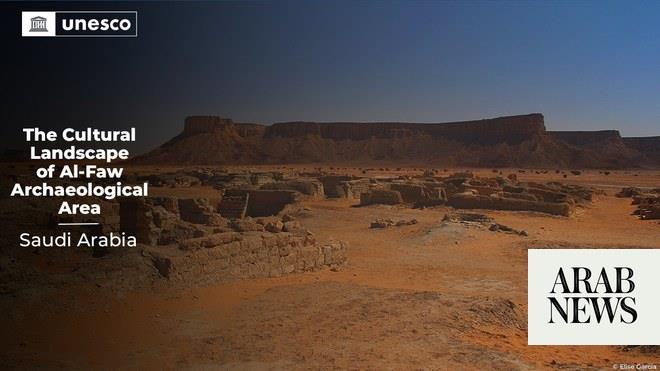
‘Stateless Heritage’ show runs until the end of January
Lightboxes capture culture, geography, spirit of camp
LONDON: An immersive exhibition in London presents the heritage and culture of Palestine’s Dheisheh refugee camp and challenges the UN’s top cultural body to list it as a World Heritage Site.
The camp, near Bethlehem, has been home to thousands of displaced Palestinians since they were expelled from their homes during the Nakba — the exodus of indigenous Palestinians from their ancestral homeland upon the creation of the state of Israel.
“Stateless Heritage” uses lightboxes to capture the culture, geography, and spirit of the camp, displaying photographs from the local terrain, replete with graffiti and posters from resistance groups.
Elsewhere in the gallery, items donated by the Palestinian diaspora, such as rugs, are displayed on the walls, and photo books are presented on plinths, showcasing pre-Nakba life in the villages that Dheisheh’s many residents were expelled from before coming to the camp.
The exhibition, in London’s Mosaic Rooms, is run by the A. M. Qattan Foundation, a Palestinian charity focusing on culture and education.
The campaign by DAAR (Decolonizing Architecture Art Research) to nominate Dheisheh as a World Heritage Site was, the Mosaic Rooms said, a “provocation” designed to “expose how the definition of heritage is not universal as claimed, but subject to nation-state control and has colonial foundations.”
Flora Bains, press officer at the Mosaic Rooms, told Arab News that the exhibition questioned the “colonial and nation-state origins of what is world heritage and what is a world heritage site. It’s about questioning the idea of heritage; what heritage is viewed as important?”
The exhibition, she said, “particularly looks at UNESCO world heritage as something that is about nation-state history. That is part of the criteria.”
Bains said the exhibition questioned what the “consequences for ideas of heritage” would be if it were suggested that a refugee camp was a World Heritage Site.
The show, which runs until the end of January, also provides a space for local artists and activists to interact with the public, perform their art, and meet and interact with visitors.
This space, said Bains, was “inspired by the living room spaces in Dheisheh camp — this idea that there is a gathering space where people can make connections with each other.”
For years, DAAR has been campaigning to have the camp listed as a site of world heritage, which would see it join the Taj Mahal and Stonehenge as sites of “outstanding universal value.”
Sites chosen by the UN become protected by UNESCO upon designation, and many experience increased tourism and other forms of income as a result of the designation.
The venue said the exhibition was part of a wider movement to use heritage to “resist colonialism and occupation which continues in Palestine, and to expose colonial and imperial legacies more widely. ‘Stateless Heritage’ will raise issues of migrant justice at a time when the right to claim asylum is under threat in the UK and internationally.”












